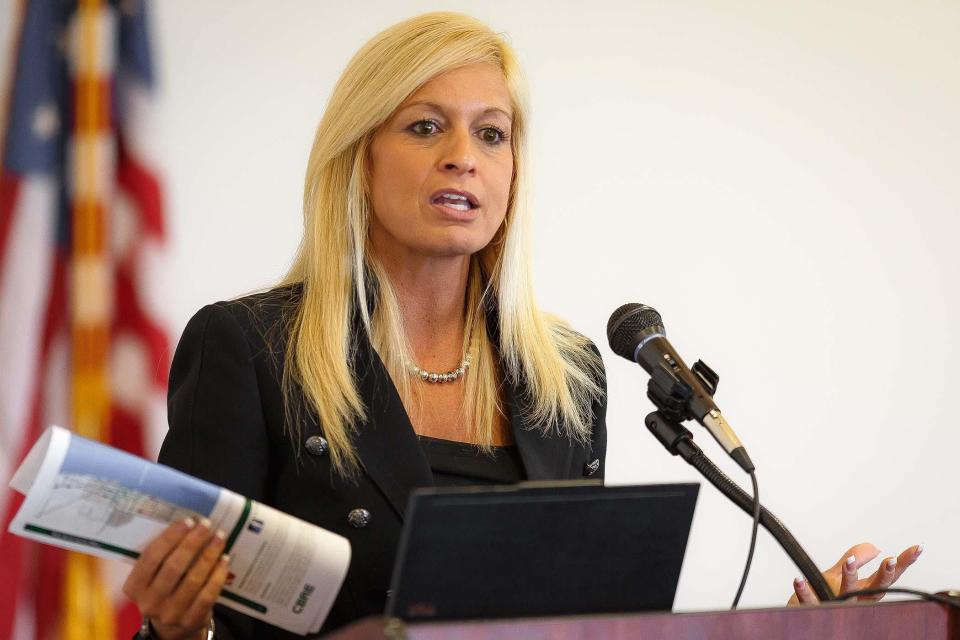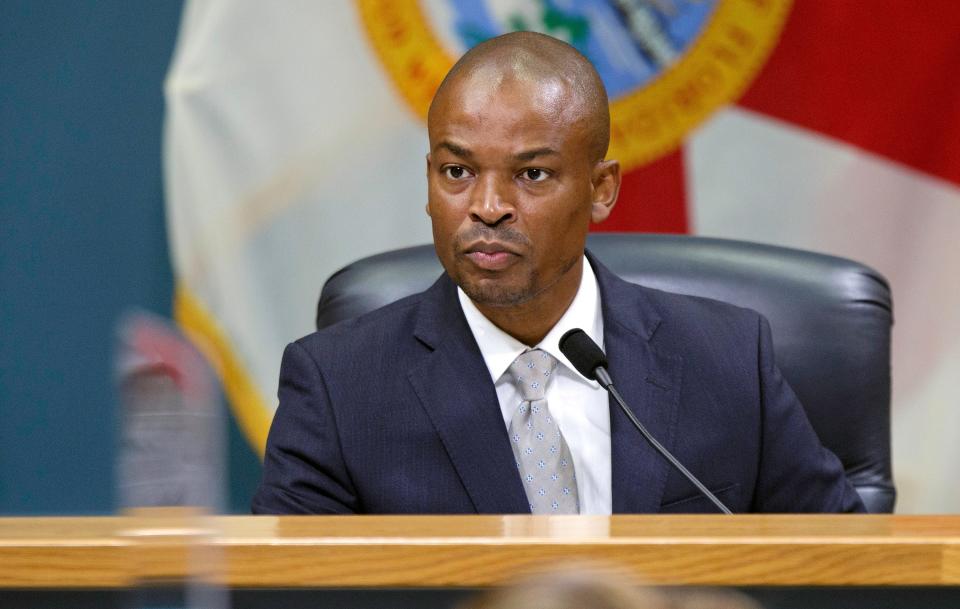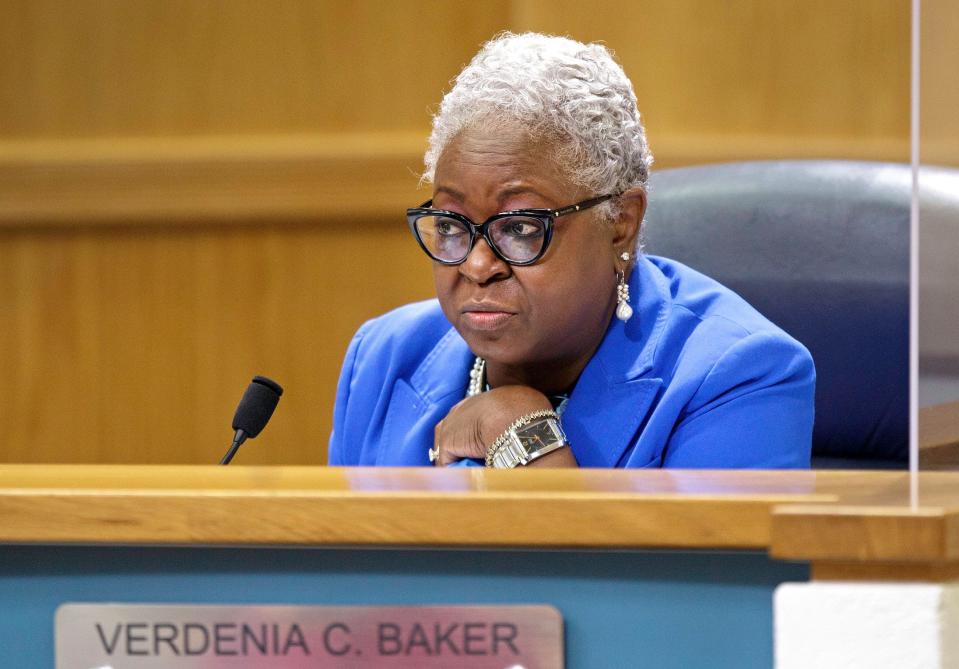Lack of affordable housing threatens Palm Beach County's economy, analysts say at forum
WEST PALM BEACH — Palm Beach County's shortage of affordable housing has started to affect the growth of its economy, to the point where its recent expansion is in jeopardy, speakers said at a housing summit last week.
Some firms interested in relocating their headquarters to Palm Beach County have put plans on hold until the situation improves, Kelly Smallridge, chief executive of the county's Economic Development Board, said as she led a panel discussion Thursday at the Palm Beach County Convention Center.
One firm even explored the possibility of buying an apartment building for their employees but could not do it because of the cost, she said.
Smallridge said a few employees have resigned days after they were hired because they could not find housing that met their salaries.
“We offer competitive wages,” said Clinton Forbes, executive director of Palm Tran, the county’s bus system, “but we are having trouble hiring and retaining employees. People want to live where they work, and it is difficult for our drivers to do that.”
The starting salary for bus drivers is $65,000 — enough potentially to buy a home costing about $200,000 on a 30-year mortgage, according to online calculators.

Surging home prices: Palm Beach County home prices break another record in April but summer cool down possible
Housing affordability: Here's your paycheck and your apartment
A neighborhood amid change: 85 new homes another change for Jupiter's Limestone Creek neighborhood
Only a fraction of new housing in Palm Beach County geared for 'workforce' budgets
Analysts have estimated the county's shortage of affordable housing at tens of thousands of homes, condominiums or apartments. In the past five years, the county has created about 1,000 workforce residences, a figure County Commissioner Mack Bernard has said in the past is woefully inadequate.
“It is going to take all of us to preserve paradise,” said County Administrator Verdenia Baker, noting that the county’s population has surged from 863,503 in 1990 to more than 1.5 million.
The demand for housing has pushed the median home cost to more than $600,000, Baker noted, which is almost four times what it was in 1990.
Thursday's summit came as commissioners are considering asking voters to approve a $200 million bond referendum in November to build more affordable and workforce housing. Bernard, a panel participant, said approval of the bond will help to create more capacity.
“We desperately need that to happen,” he said, noting that as more units are built, prices will come down. Other commissioners have questioned whether it's wise to seek the bond at a time of high inflation and with money from past county housing money unspent.
Bernard, who represents Riviera Beach and parts of central Palm Beach County area, also acknowledged that the county needs “to use current dollars more effectively.”

Some want to put $200M housing bond vote on ballot
Jack Weir, the president of Eastwind Development, another panel participant, said the bond issue will provide a dedicated source of funding for developers.
He expects the funds to be used as “gap” financing, which will provide low-interest loans to help pay for a portion of the construction costs of apartments and condominiums. Builders would be required to set aside some residences at below-market rates.
The county’s workforce housing program is geared toward creating residences that people in essential professions such as teaching, nursing and public safety can afford.
The rents that can be charged by developers taking part in it are linked to household incomes: The lower the income, the lower the rent. Those rents range between 60% to 140% of median family income.
Rents, for example, for a one-bedroom apartment must be limited to $1,318 for households earning up to $63,280. The rent can rise to $2,306 for a household earning $110,740.

The county requires new residential developments to set aside a percentage of their units for income-qualified households. In exchange, developers can increase the density of their projects, sometimes doubling what the zoning code permits. The rental limits apply to units between one and four bedrooms.
The county's guidelines apply to the unincorporated areas. Some municipalities have their own guidelines.
Nick Rojo, president of Affiliated Development, noted that any solution is going to have to come from the local or county level. “We can’t rely on Tallahassee," he said.
Weir noted the state Legislature has often taken money from a state housing fund to balance the state budget. Supported by the state’s Republican-led Legislature, Gov. Ron DeSantis in 2021 signed a bill to divert half of Florida's affordable-housing trust fund — called the Sadowski fund — to pay for wastewater systems and sea-level rise projects.
Weir and Rojo said that developers also need to do a better job of confronting the “not in my backyard” argument, aimed at deterring city, town and village officials from approving denser and taller developments like apartment buildings in neighborhoods dominated by single-family homes.
“We need to ensure that the future tenants of these apartment buildings are represented during public hearings,” said Weir, “so that elected officials understand there are two sides to this situation.”
This article originally appeared on Palm Beach Post: Forum targets affordable housing shortage in Palm Beach County

